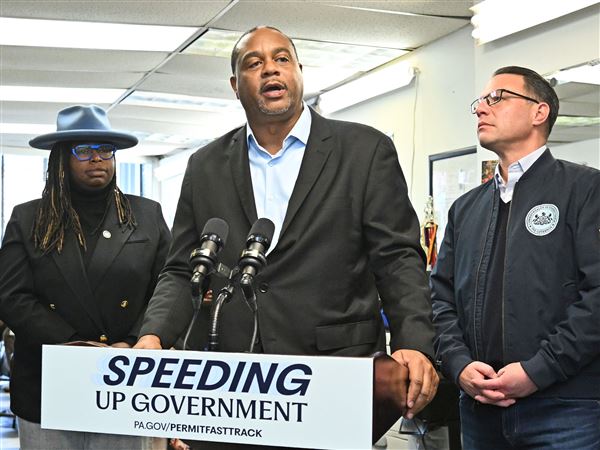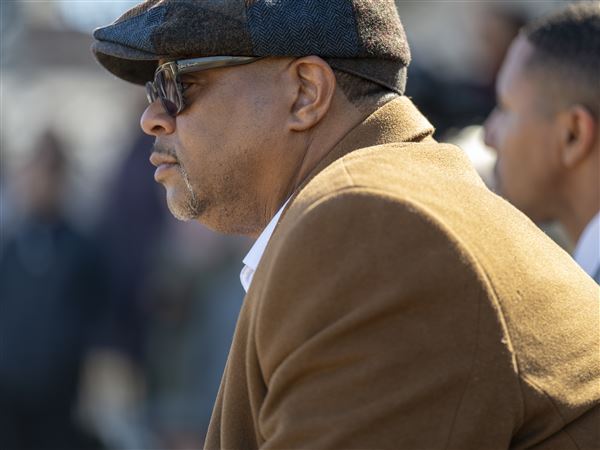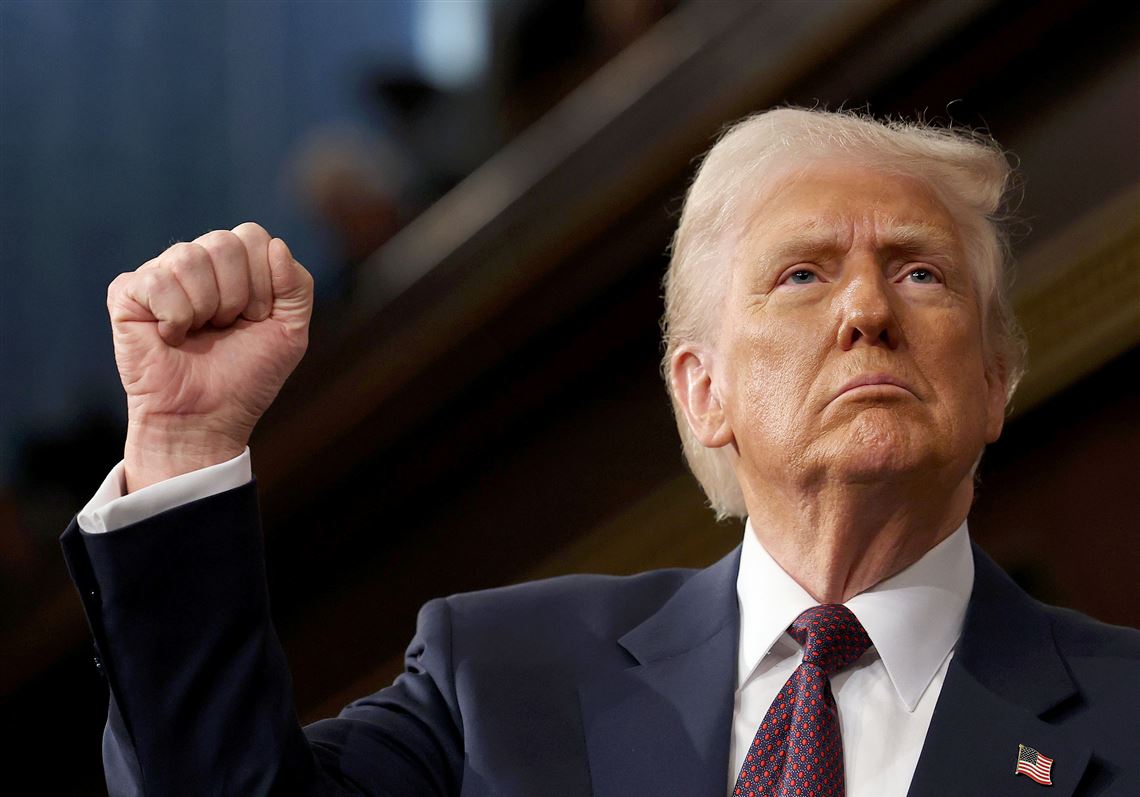It was the kind of warm March day when the Pitt campus virtually pulsates with hopeful energy, its students hustling in 12 directions, snarling Oakland’s menacing traffic, simultaneously maintaining earnest conversations. Winter was surrendering amid in the lilt of their laughter. For some, graduation had just crept within reach.
Indoors was something of another matter, depending on the coordinates. Somewhere in this urban riot of majestic architecture, someone was clicking the print function on a University hiring freeze in response to “a shifting federal landscape,” and somewhere else, the legal and political interplay behind such landscaping was the subject of high-minded discussion.
The landscaper in chief
Neither the words “Landscape” or “Hellscape” appeared on the forum’s virtual marquee though. Officially it was the University of Pittsburgh’s Institute of Politics, presenting the newest of its Dick Thornburgh Forum for Law and Policy programs: “Reshaping Government, Possibilities and Perils, the Future of Federal Law Enforcement and Agency Oversight.”
I wasn’t there five minutes when someone said “pusillanimous,” so yeah, this was the place.
My interest was specifically to hear Harry Litman, who has tried so hard for so long to educate cable news mavens (and now 250,000 subscribers on Substack) on how the legal system could, should and somehow hasn’t constrained Donald Trump, convicted felon and now chief landscaper behind looming federal cuts that will rake $150 million or more annually from Pitt’s budget.
Both Litman’s parents were Pitt Law School grads of distinction, prompting former Pitt Chancellor and Chair of the Institute of Politics Mark Nordenberg to note, “We can all assume that Harry must have wanted to come to the Pitt Law School, and because he didn’t, I’m left to speculate that maybe he couldn’t get in. As a result he had to settle for Harvard College and Berkeley.”
Law School humor. You can’t beat it on a Monday afternoon.
Despite the inherent demerits in his Juris Doctor that resulted from lack of exposure to the Dirty O, Litman went to clerk at the Supreme Court for Thurgood Marshall and Anthony Kennedy, and to teach law at Berkeley, Georgetown, USC, Princeton, and Pitt.
For most of an hour, he spoke inside the Barco Law Building to what Nordenberg described as a community audience, though its median age was more suggestive of a suburban library. His remarks were sobering, even to a seriously sober assembly.
The American Experiment at risk
“I wrestle with this weekly, as I try to explain, based on my experience, what is so serious and grave and undermining, and my sense is that it comes across as somewhat abstract, somewhat pointy-headed,” he said. “But there are important structural stakes in play. We’re in for a rough several years economically, etc. If the American Experiment survives on the other side, my best guess is it will, but that is the gravest risk. It’s a hard message to bring. This is the Constitution we’re talking about. The crisis is a much more structural and fundamental compared to countries where Democracy has perished.”
As someone in no position to argue such matters with the kind of brains evident throughout the room, Litman’s darkest observations sounded plainly evident to me, but it wasn’t what I was looking for. I was trying to get a more visceral sense of what it feels like among decorated lawyers to regard the law in its battered state. The American legal system and its very basis, the Constitution, is today under government assault.
This is no “shifting federal landscape.” This is a long-conspired destruction now in full bloom, as when the Department of Justice orders New York prosecutors to dismiss a bribery case against New York City Mayor Eric Adams, as when a DOJ official gets ousted for refusing to restore gun rights to Trump supporter Mel Gibson.
That official, Elizabeth Oyer, said she wasn’t told the reason for her dismissal this week, but that the sequence of recent events makes it plain. Unwittingly, she further described the raw nature of Trump’s power, which he has himself identified as fear.
“Unfortunately, experienced professionals throughout the Department are afraid to voice their opinions because dissent is being punished,” Oyer told NBC News. “Decisions are being made based on relationships and loyalty, not based on facts or expertise or sound analysis, which is very alarming given that what is at stake is our public safety.”
So how does it feel, in the milieu of legal scholars, to know that at every pivotal turn in the metastasizing matter of Donald Trump, the law has failed. Merrick Garland and other assorted legal Olympians all the way to John Roberts, Chief Justice of the Supreme Court, have made it so that Trump needn’t fear the law. Worse, much much worse, the law now fears him.
Steamrolled Constitution
“It’s galling; it’s irritating, it’s frustrating,” Litman told me after the program. “But what I’m most worried about is the steamrolling of all the Constitutional protections. I’m not a crazed lib. I have a lot of colleagues on both sides of the aisle who do think this is a singular challenge, who know we can literally see from here to a place that you’d have to call an authoritarian society.”
Trump, he said, has “already got so many of the standard checks and balances under his thumb. As a citizen, as a Democrat, all this stuff bugs me, but as a former DOJ official and nerdy type, I’m terrified; I’m terrified.”
Gene Collier’s previous column was “Team Putin has a Washington bureau.”
First Published: March 11, 2025, 9:00 p.m.
Updated: March 12, 2025, 3:39 p.m.















